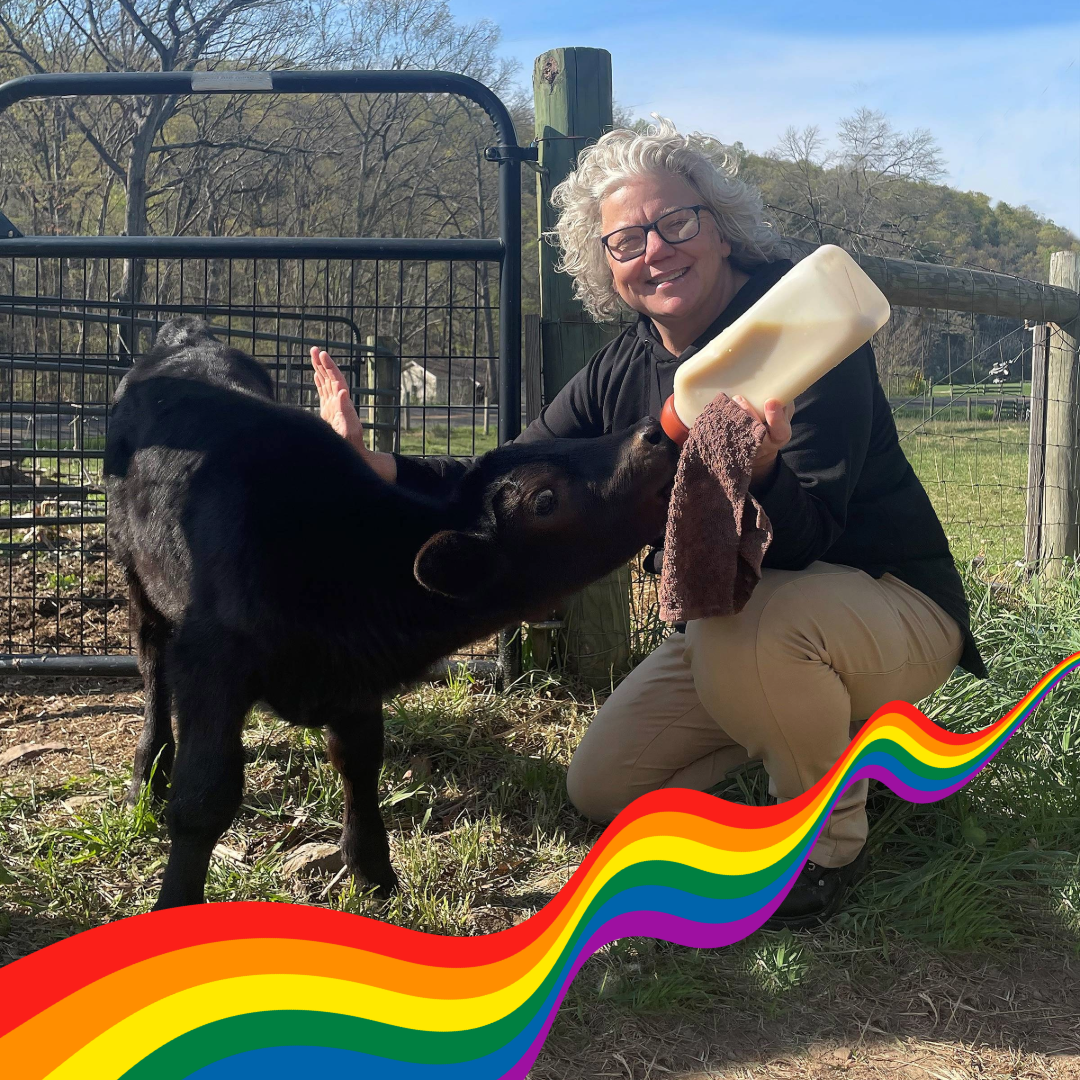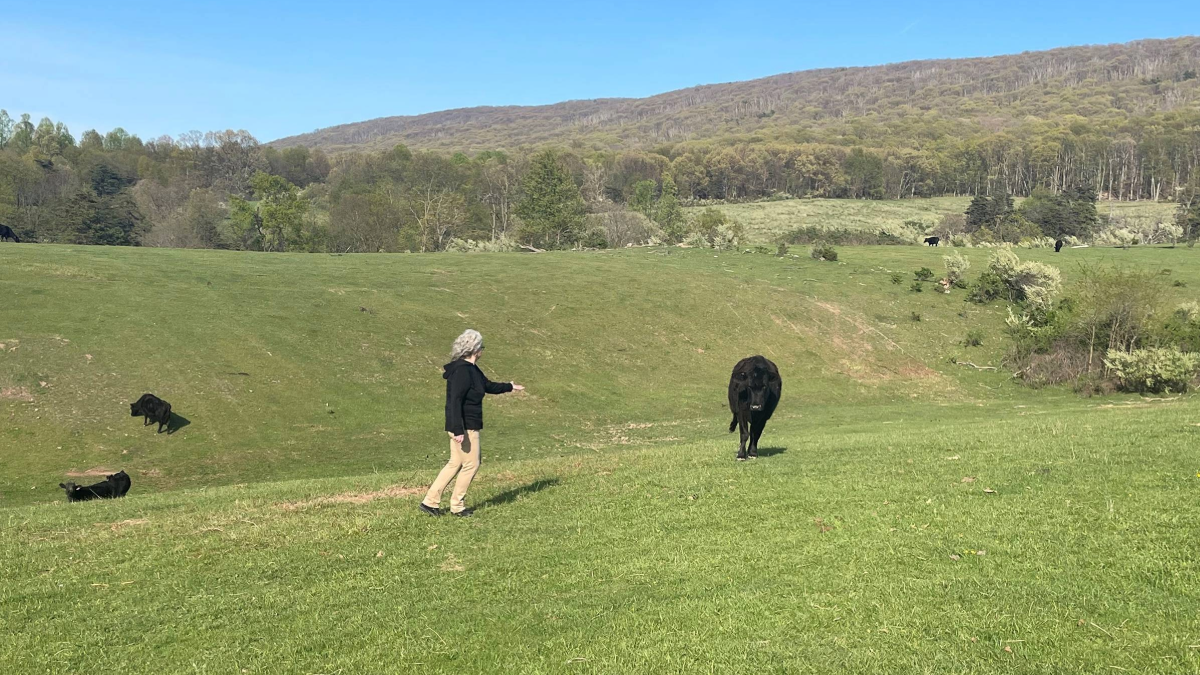
The community of Rio lies in the gentle, sloping valley of the North River, in the heart of West Virginia’s fertile eastern spur. Rio has one gas station, one general store, one restaurant, four churches and, by recent estimates, about 150 full-time residents.
Beth Loy was raised here, the only child to Gary and Betty Loy. “Betty and Gary’s daughter” is how townsfolk still know her. For about as long as Rio (pronounced locally as RYE-oh) has been around, so has Loy’s Farm. Beth grew up on the 172-year-old, 225-acre ranch, spending her summers and after-school hours with her grandparents Ersel and Glenna Loy as they produced eggs, apples and livestock. “The farm was my babysitter once I could walk,” says Beth.
It was Ersel who taught Beth the ways of the farmstead, among so many other indelible lessons. To his granddaughter, he always seemed larger than life, “this big, strong person who could do anything,” raising fences with one hand and digging ditches without breaking a sweat. When Beth was still young, Ersel developed leukemia and, over time, started having to do things differently to accommodate his condition. “That was my first experience with disability, though I didn’t know at the time that it was a disability experience,” says Beth thoughtfully in a soft drawl, her gray curls bobbing. “I just thought it was how life works.”
The farm yielded a bounty of life lessons involving ability, disability, accommodation and the value of work—experiences that have steered Beth through both her personal and professional life. Today, in addition to tending 40 head of Black Angus cattle on the farm, which now belongs to Beth and her wife, Samantha, Beth works full-time at the U.S. Department of Labor’s Office of Disability Employment Policy (ODEP) as a policy advisor. Her job is to help improve opportunities for disabled people to succeed in good jobs.
Beth focuses on promoting policies that empower employers and workplaces to support the success and well-being of workers with disabilities, especially those with multiple disabilities or who have intersecting, marginalized identities. “I struggled with the intersection of my own disability and LGBTQI+ identities from a young age,” says Beth, who managed her mental health condition—anxiety—alone for most of her youth, feeling that she didn’t have anyone she could turn to for understanding. “What stood out to me, during my upbringing in Rio, was never being around anyone who was ‘like me.’”
Disability was not talked about in Beth’s community. Even more so, mental health was not talked about because it was the kind of thing that cast a person as “weak”—grave offense to any farmer. Not having a role model meant that Beth had to figure things out, including accommodations, on her own. Her rural environment ingrained self-reliance and creativity, and the farm taught her grit and persistence, and these are the traits she relied on.
Beth became the first person in her family to go to college, against the odds. “I remember being told by my high school guidance counselor that I would never graduate from college. I was a good student, so I didn’t understand why someone would say that. I guess I was complex—maybe too complex,” says Beth. “I remember coming home and seeing my parents distraught, thinking they were setting me up for failure. They were second-guessing themselves. From that minute on, I refused to fail.”

Beth graduated from college and earned three master’s degrees, along with a Ph.D. in economics, before joining the ODEP-funded Job Accommodation Network (JAN) at age 26. “Once I began my career at JAN, I had the opportunity to travel. I saw firsthand the beauty and diversity of America. I began to interact with more ‘people like me’ and never stopped,” says Beth. “It is in my career that I found and began taking pride in my authentic self.”
After nearly 25 years with JAN, Beth joined Amazon to help form the company’s first dedicated in-house disability-focused programs. Three years later, she reentered the public sector, joining ODEP’s Employer and Workplace Policy Team in July 2023. Throughout her professional life, Beth says she has been surrounded by only the most supportive, diverse and inclusive colleagues, in workplaces where being “out at work” and having a disability was a nonissue. “This encouraged me to bring my whole self to work,” says Beth, who was not only the first person in her family to attend college, but also the first generation to go to work with protections under the Americans with Disabilities Act. “Disclosing and asking for accommodations is a uniquely personal journey, but it certainly helps when you work for great organizations.”
If her disclosure at work felt like a meeting of minds and hearts, her experience in Rio was about changing them. “The struggle for me was, how are people in this community, who don’t talk about mental health, how are they going to look at me coming out as having a mental health condition, as well as coming out as gay?” Beth recalls. “I’ll never know for sure, but I think I did switch the view of many people.”
Beth and Samantha, who also hails from Rio, have a 15-year-old daughter named Alivia. They are trying to create a more inclusive community for Alivia than the one they grew up with. Beth hopes to be the safe space and role model she never had, for all kids in the community. “I was motivated to disclose my sexual orientation and share my disability so that youth who are struggling with their multiple marginal identities can see someone like them. I understand the pressure to hide your identity so that you ‘fit in,’ especially in a rural area where there is often not a lot of diversity,” says Beth. “I hope they might see me and say, ‘If Beth is doing it, then I know I can do it one day, too. I’m gonna be OK.’”
Sora Song is a writer-editor in the U.S. Department of Labor’s Office of Disability Employment Policy.

 U.S. Department of Labor Blog
U.S. Department of Labor Blog